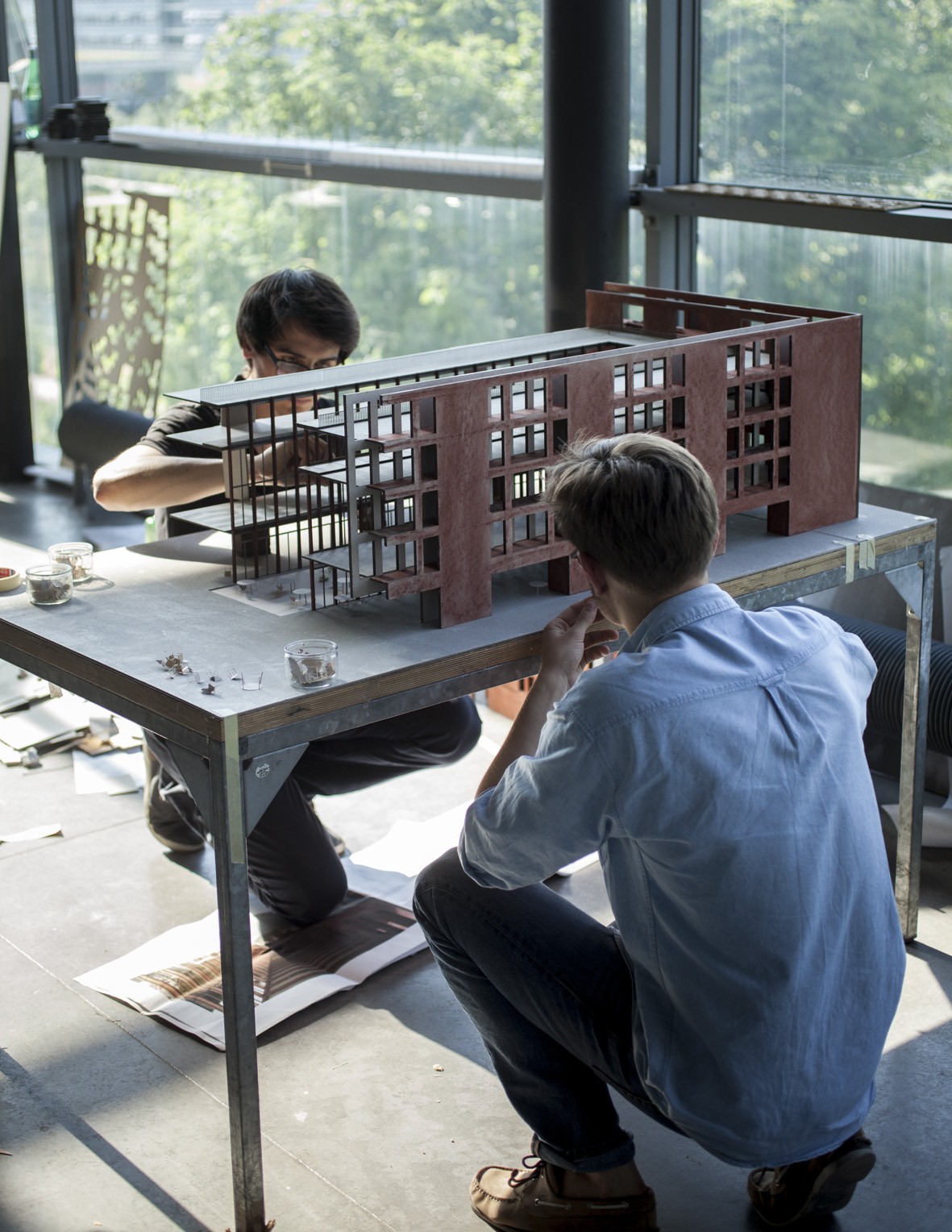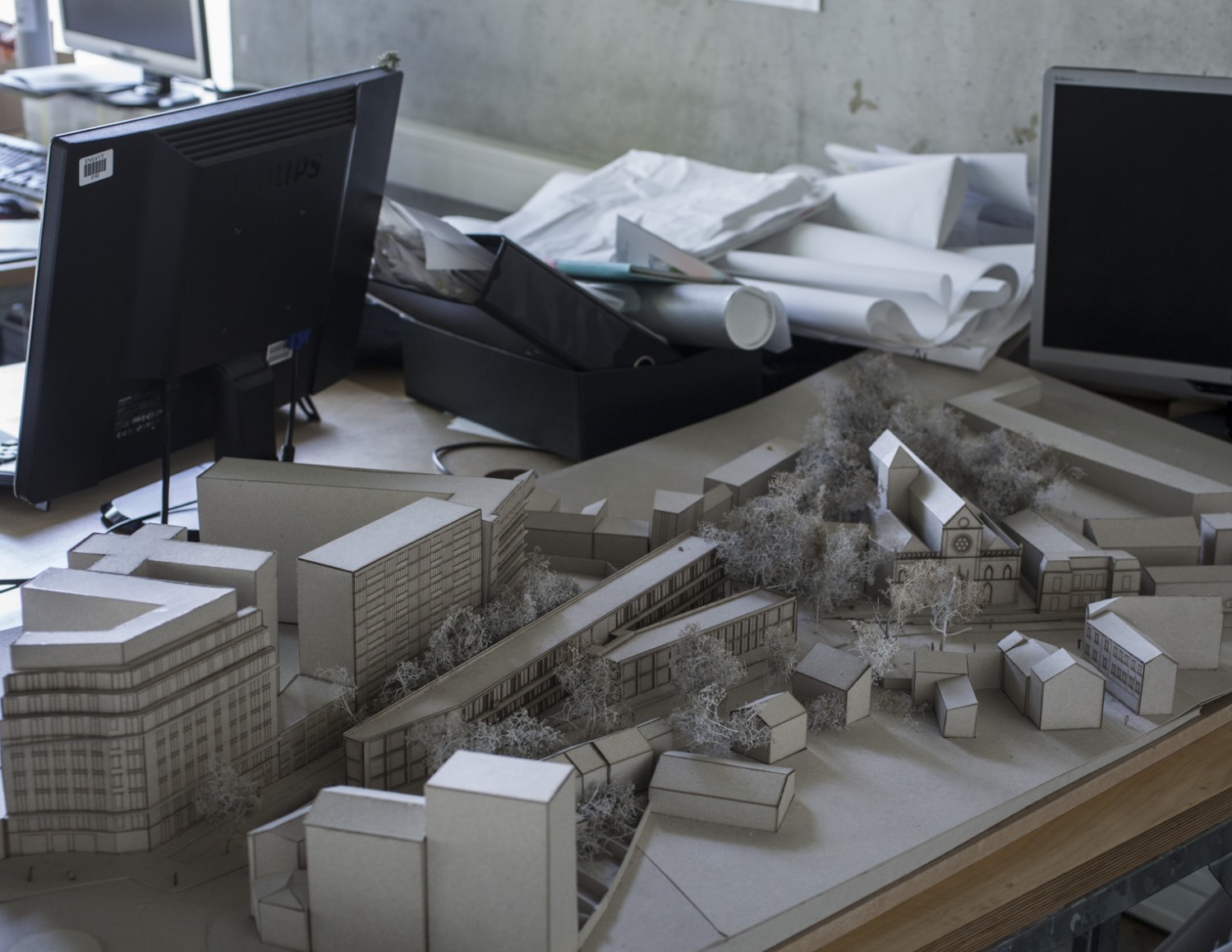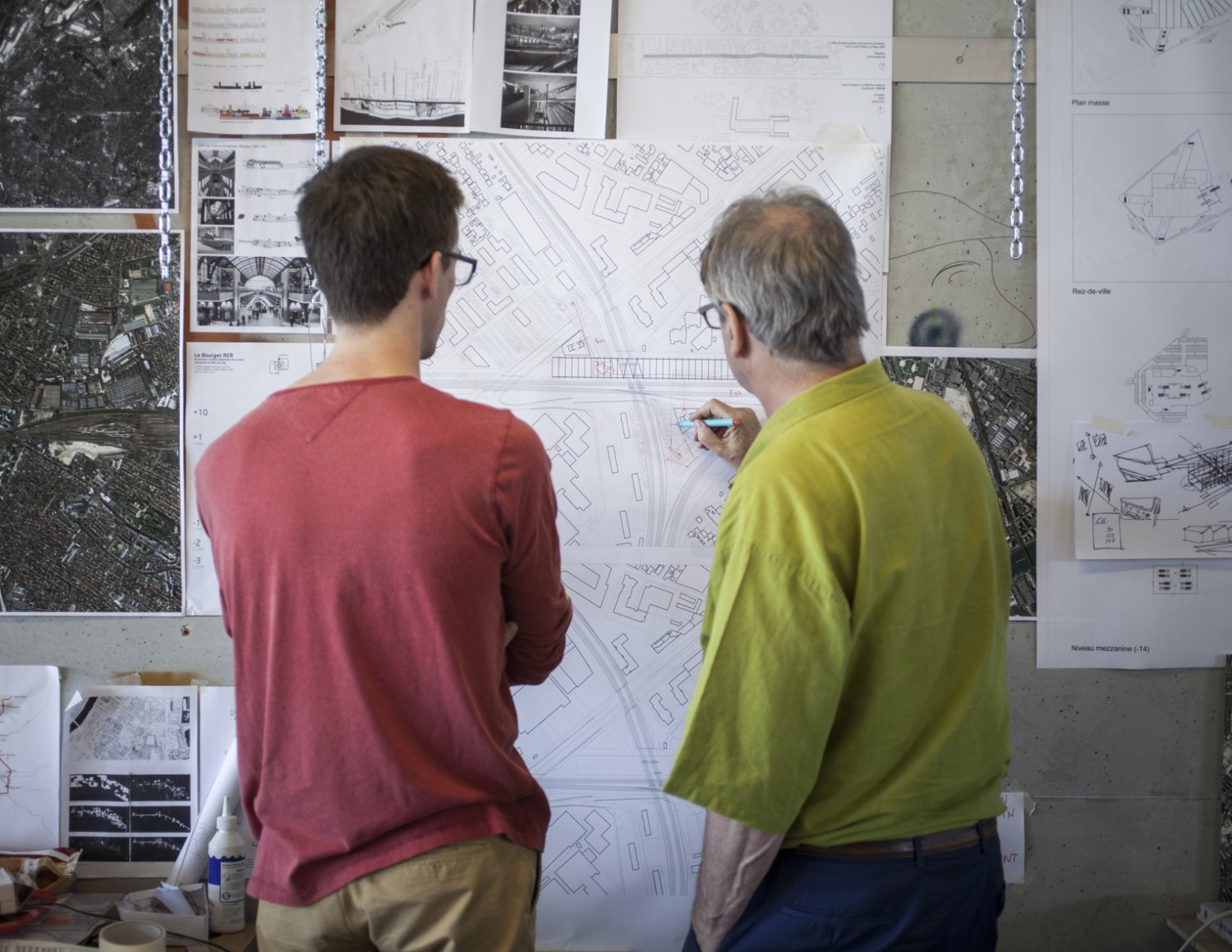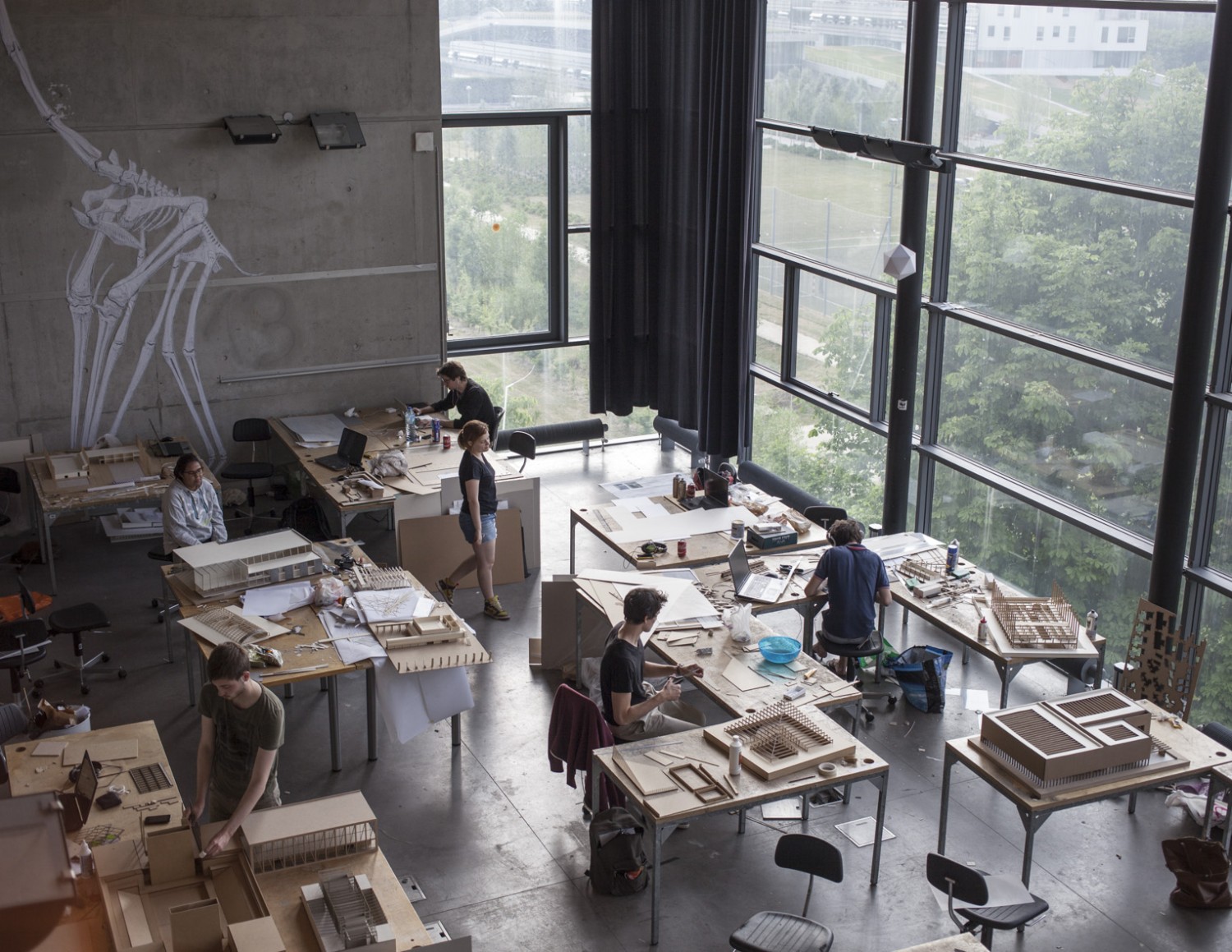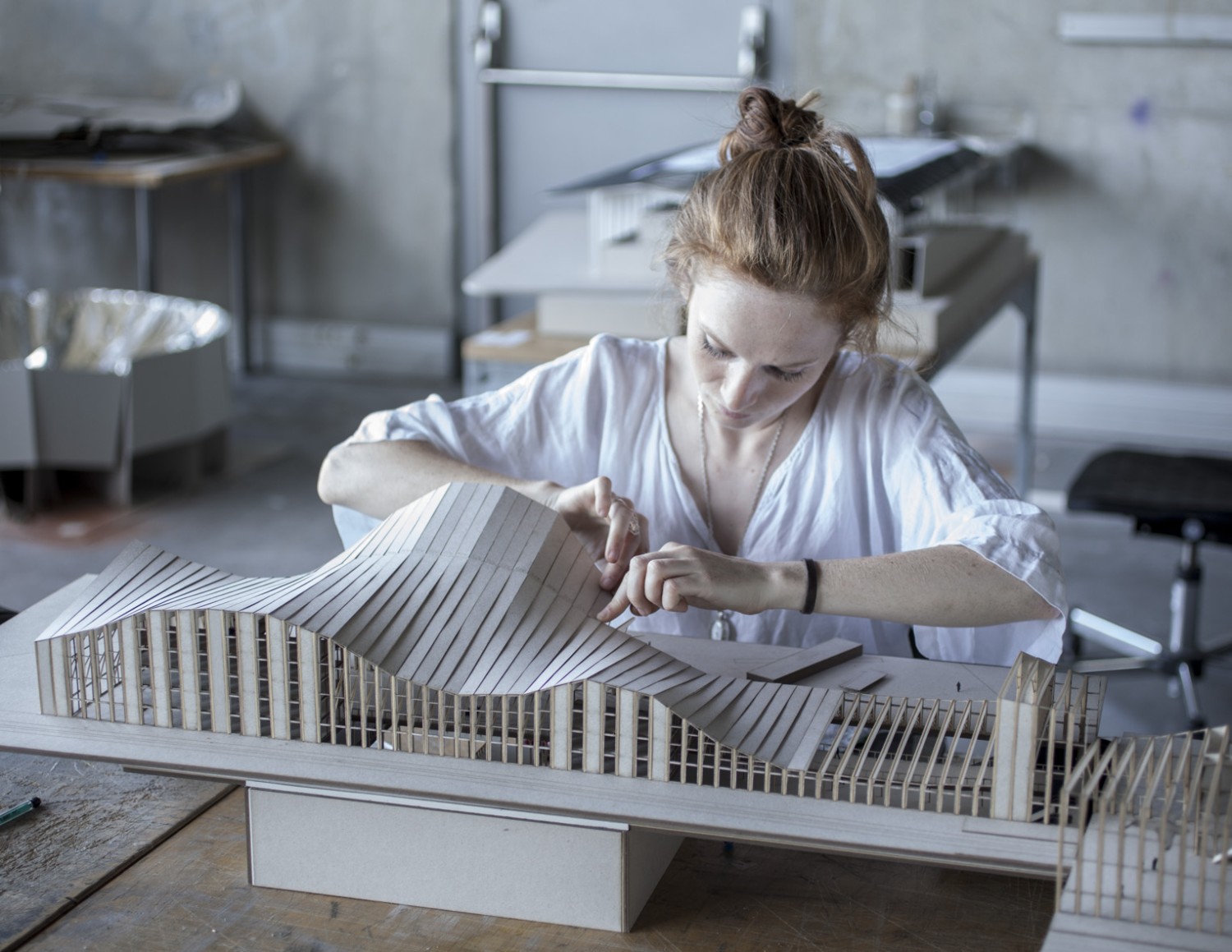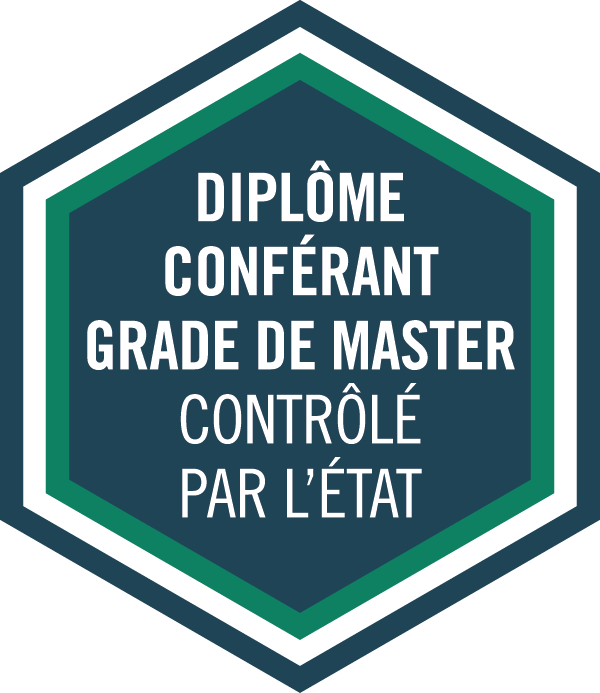Master
The second cycle allows students to acquire critical thinking on issues related to architecture.
At the end of this course, all students must be capable of designing a project independently, by deepening their concepts, methods and fundamental knowledge. This training prepares students for the different modes of practice and professional fields of architecture, as well as for research. The second cycle lasts two years and leads to the State Diploma of Architecture, which is equal to the grade of Master.
Presentation and specificities
The second cycle of architectural studies, or Master1, lasts two years and leads to the State Diploma of Architecture and confers the grade of Master.
At the École d'architecture de la ville & des territoires, it is organized into four in-depth courses in which the final project and the thesis are developed:
Architecture & Experience - Eric Lapierre
Profession of Faith
According to John Cage, «experimental» describes an action «the outcome of which is not foreseen». This program’s name, Architecture & Experiment, celebrates, conjointly, its attachment both to the question of scholarly architecture as a discipline based on historical plans and theories, on the one hand, and to the experimental character of an exploratory approach on the other. Such an investigative approach has been inherent to the discipline, as concept operandi since the Renaissance, yet on closer examination such experiment proves present in all eras, as attest such examples as the optical corrections of the Parthenon or the edginess of gothic structures pushed to ultimate physical limits. ...
learn more
éléments, structure & architecture - Léonard Lassagne & Jean-Marc Weill (Structure et architecture)
Profession of Faith
More than ever, the immense upheavals linked to climate change require us to rethink our ways of living and thinking. The finitude of the world and the climate catastrophe underway are a call to be rational; and as Bruno Latour suggests, "to finally take the present seriously"...
learn more
Fragments - Ido Avissar
Profession of Faith
It is necessary to disperse the universe, to lose respect for the whole. Friedrich Nietzsche
The role of the Fragments Pathway is to question architecture through its relationship to the metropolis and the territory. The dialogue that we seek, between geography and architectural signs, imposes changes of scale and perspective, assumes a certain distance, and implies a permanent questioning of our project thinking. ...
learn more
Transformation - Paul Landauer
Profession of Faith
It is most likely that in the years to come the discipline of architecture - as well as the profession of architect - will no longer be guided by the elaboration of a new world.
Not because the issues of the present world are stable. We know that the exact opposite is true: the environmental imperative invalidates many of the built situations we inherit, and the expected climate crisis will only increase the extent of this obsolescence. This is the unprecedented paradox in which we are now immersed: we should build a more sustainable, less obsolescent world, but we no longer have the means to do so. We must therefore learn to transform. ...
learn more
These pathways express marked but complementary ideological positions. The representations and ideas on which they are based are made explicit and stated: this is the best way to allow students to construct their own architectural posture, as they traverse a series of singular worlds during their studies.
In addition to the courses related to the program (seminar and project), students must take elective courses.
During these two years of study, students are exposed to the professional world through a practical training period lasting two or three months. If they wish, they can take a one-year break to gain further experience.
The School of Architecture has chosen to make the awarding of the diploma conditional on obtaining an external certification in a foreign language.
Organization
- two years, i.e. 4 semesters leading to the State Diploma of Architecture;
- 1,200 hours of supervised teaching;
- teaching structured in teaching units (UE);
- The diploma is obtained after validation of all the teaching units of this cycle (120 ECTS);
- a project and seminar course developed within the framework of the chosen course of study;
- a practical training period of eight weeks;
- diversified pedagogical forms: workshop work, lectures, seminars, educational trips;
- four in-depth courses of study;
- The final semester ends with the final project.
Admission
The admission Master's degree is open to students who hold either a diploma in architecture equivalent to the degree of licence, or a French or foreign qualification accepted as an exemption from or equivalent to this diploma.
And then
The State Diploma of Architecture allows you to enter the workforce and can lead to: the doctorate in architecture;
- the doctorate in architecture ;
- the HMONP;
- the DSA of architect-urbanist;
- the DPEA Architecture Post-Carbon training;
- (future of the graduates of the School of Architecture).
or other higher education courses, such as masters, specialized masters in compliance with the conditions of access to these courses.
